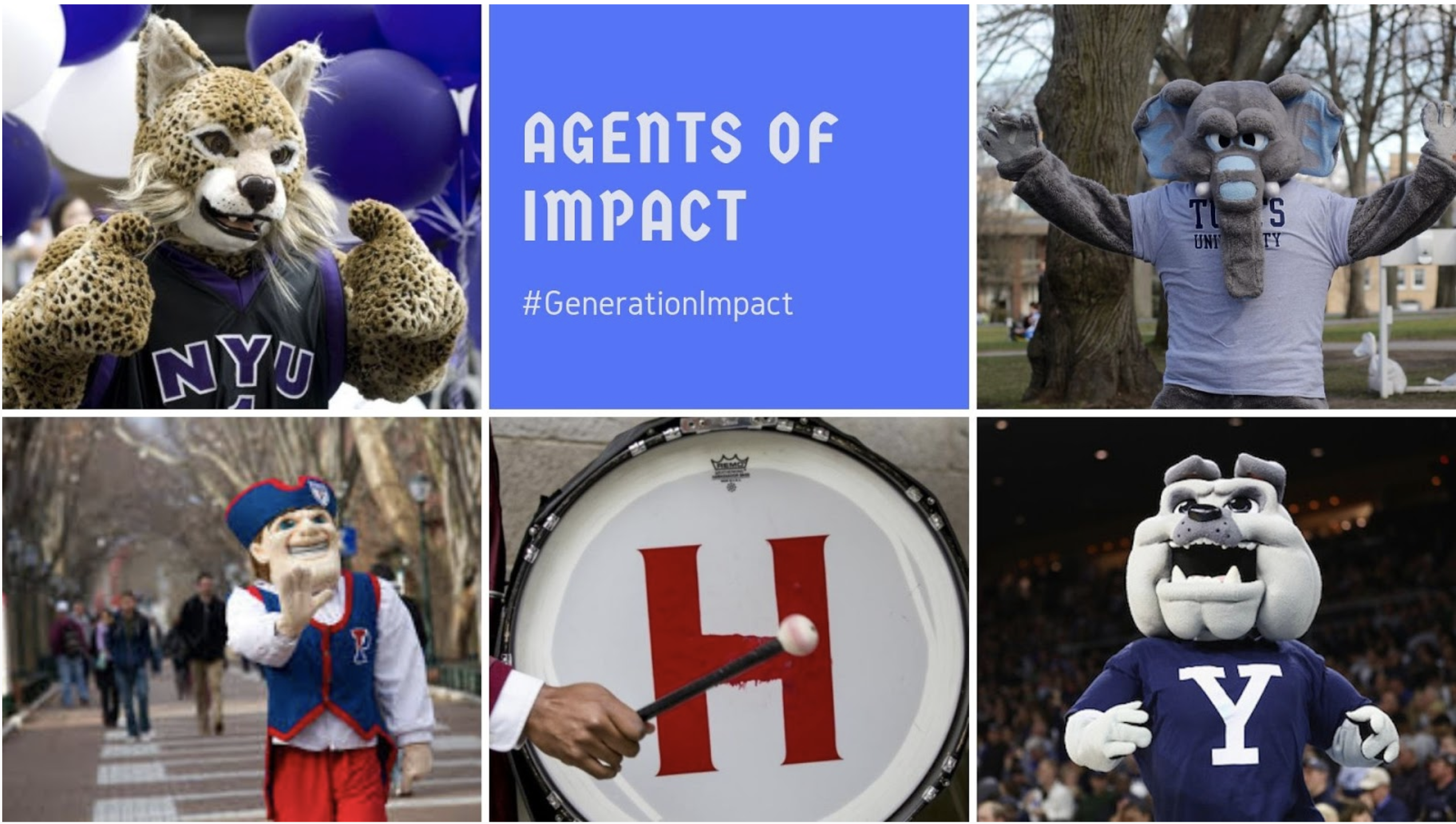March 19, 2020 – Campuses are closed, but ImpactAlpha U was in session last week.
Faculty and students from dozens of MBA and other graduate programs joined Agents of Impact Call No. 13 to talk sustainable finance and impact investing education. The Call took place last week, just as universities and MBA were starting to shut down.
The impetus was the disruption of traditional finance, management and policy programs by sustainability, impact investing and other ESG, or environmental, social and governance approaches. The disruption of the coronavirus pandemic only reinforced what’s at stake.
“We can’t keep up with the demand no matter how fast we grow,” said Wharton’s Sandi Hunt. “The driving reason is this generation of students and their demand – not expectation – that they are going to live more integrated lives: their jobs, their finance, their time all aligned more with their values.”
Impact and sustainable finance to the rescue – of business schools
University of Texas’ Meeta Kothare said the McCombs business school has seen a huge demand for both classes and experiential opportunities in sustainable finance and impact investing. “You see a lot more women,” she said. Interest from faculty as well is “dramatically different from two years ago.
The Impact & Sustainable Finance Faculty Consortium has grown to 190 faculty members across 90 universities in 18 countries. The practices and approaches increasingly are being integrated across the curriculum, said Kellogg’s Megan Kashner, who leads the consortium. At Kellogg, she said, “You see social impact cases, questions and approaches being woven into MBA programs outside of the impact-first classes, into finance, management and organizational behavior.”
Impact investing business profs to share their syllabi and other secrets
As enrollment in traditional finance and MBA programs programs has declined, some universities have revamped their business schools to focus entirely on sustainability and impact, said Peter Lupoff of NetImpact, which has student chapters at more than 200 universities. The University of Vermont, for example, shut down its previous MBA program to offer instead a Sustainable Innovation MBA.
Mid-career professionals also are keen to learn the skills of impact and sustainable finance, “to either excel at their jobs or move from traditional finance into impact investing,” said University of Capetown’s Aunnie Patton Power, which has an extensive executive education program.
Teaching asset managers and asset holders to move capital can be a high-impact proposition, she said. One institutional investor did a training in November and created its first environmental and social product in January, she said.
Talent competition
Korn Ferry’s Kate Shattuck said the most sought-after job candidates are “multilingual,” fluent in finance, policy, business and philanthropy. “Students are uniquely qualified to have fluency in those language.” Kellogg sponsors, with Morgan Stanley, the annual Sustainable Investing Challenge, which this year attracted 95 teams from 74 schools. Judges will pick winners from the dozen finalists in an online event April 17.
Wharton hosts both the Total Impact Portfolio Challenge and the MBA Impact Investing Network and Training, or MIINT.
Required reading
At NYU’s Wagner School of public service (impact investing is not just for MBAs), Prof. Scott Taitel provided free access to ImpactAlpha for his Social Impact Investment class. “That provided the extracurricular learning that fueled the fire for a lot of us,” said student Luke Jones, who added that ImpactAlpha’s podcasts provided an easy entry into the community.
Through a scholarship program supported by the Rockefeller Foundation, ImpactAlpha provides free subscriptions to faculty and discounted site licenses to university libraries. Students at Harvard, Yale, MIT, Tufts, Stanford, Oxford, Duke, Michigan and a dozen other schools get free access to The Brief and ImpactAlpha.com. “We are very keen to mobilize this bottom-up demand from students and faculty,” said ImpactAlpha’s David Bank.
If you are a student or faculty at these schools and haven’t claimed your free subscription to ImpactAlpha, email us at [email protected] or contact your school library. If your school does not yet provide access to ImpactAlpha, we can guide you through the process to add it to your library’s subscriptions.











